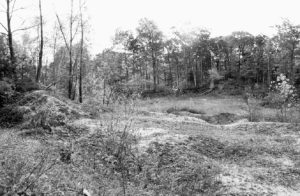State Grants Help Norfolk Fund Capital Improvements
By Bob Bumcrot
The selectmen were recently notified that Norfolk has been granted $250,000 from the Connecticut Small Town Economic Assistance Program (STEAP), a state program created in 2007 to pay for economic development, community conservation and quality of life projects for small municipalities in Connecticut. Governor Jodi Rell stated in her press release regarding the new program, “The STEAP grants are a critical way of helping smaller towns grow, stay vital and maintain the charm that makes living in Connecticut so special. These projects range from improvements like lighting and seating in town centers and renovations of historic buildings to water, sewage and municipal waste projects – items that may be a little less glamorous but are no less important.” The town first submitted a STEAP application back in February 2008, requesting $500,000 for several projects, one of which was bringing water and sewer lines up Old Colony Road from Route 44 to the town garage. This initial application was denied, so another proposal was submitted. Meanwhile, the town was able to install the water line to the town garage using funds in the existing budget and the sewer line was put in with a $150,000 grant from the Local Capital Improvement Program (LoCIP), another state program. LoCIP grants are based on population, so a town of Norfolk’s size receives $33,000 a year. The new pipes will make it easier to proceed, at least when the economy improves, with the mixed affordable and market rate cluster housing development along Old Colony Road proposed by Mark Burke and partners. It also allows a leach field to be developed on land adjacent to the town garage. The selectmen have begun discussions on what uses will be made of the newly granted funds. New proposals for projects must be approved by Robert Genario, Director of the Connecticut Office of Policy and Management. At the top of the selectmen’s list are the construction of an unheated building, perhaps atop the leach field, to shelter town vehicles and a wash bay facility to satisfy requirements of the Department of Environmental Protection (DEP). “We are sort of grandfathered [with respect to this requirement],” said First Selectman Sue Dyer, “but this would definitely improve our status with the DEP.” The wash bay would use water from a well that was previously the garage’s sole source of water. Material from the washes would be held in a tank and processed using an oil separator already in the garage, along with other methods. The cleaned water would then go into the new sewer.

